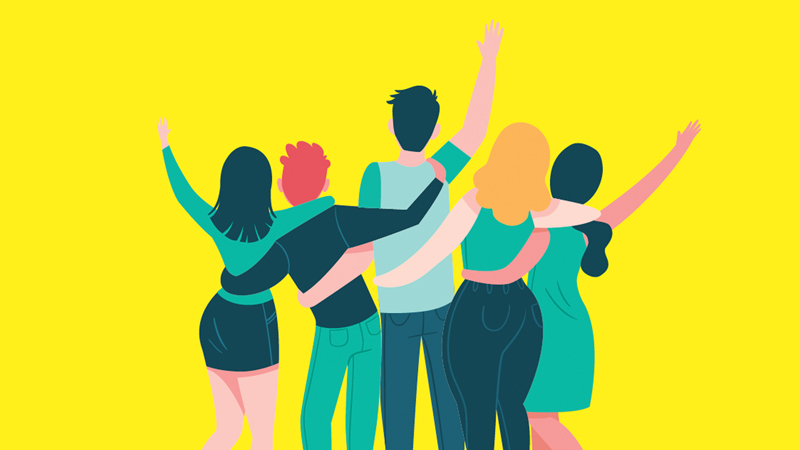Friendship is more than just having someone to hang out with; it can shape who we are and how we feel overall. Let’s dive into why friendships are such a big deal!
Why it matters
Muhammad Ali once said, “Friendship is the hardest thing to explain.” He knew that friendship isn’t something you just learn in school. It’s about mutual respect and caring for each other. Your closest friends are the ones you can count on when times get tough, share a laugh with, and enjoy spending time together.
Evolution
Our idea of friendship evolves as we grow up. We can make friends in seconds — like bonding over a slide at the park when we’re little kids. But as we hit school age, best friends might change constantly.
In our teens and early twenties, friendships can expand to a massive network of people. Then, as we grow older, things tend to get a bit more focused. We often refine our friendships to fit our busy lives with work, relationships, and maybe even kids. If we’re lucky, some friends will stick with us through all these phases of life.
Making connections
Friendships form for a reason, and they help shape who we become. We usually make friends based on two main things: where we are and what we like.
We often become friends with people we see regularly, like classmates or teammates. Whether it’s nursery school, school, or college, our friends usually come from the same crowd. We vibe with folks with similar interests or life experiences. That’s why most of our friends are around the same age and in similar environments.
Thanks to the internet, we can connect with people who share our passions online, turning virtual buddies into real friends.
Friendship dynamics
Research shows that people tend to fall into different friendship styles. Professor Janice McCabe outlines three main types:
1. Tight-knitters: These friends know each other well and often hang out together. They provide vital support, but drama can spread quickly in these groups.
2. Compartmentalizers: This group has different friend circles for other parts of life — school friends, work buddies, and hobby pals. This setup is super handy because it lets you rely on different friends for different needs.
3. Samplers: Samplers tend to have one-on-one friendships instead of large groups. They might feel isolated but usually value their independence and personal connections.
Knowing your friendship style can say a lot about you and how you connect with others.
How many friends can you handle?
Ever wonder how many friends are too many? British anthropologist Robin Dunbar says our brains only handle about 150 meaningful connections. This includes your closest friends, casual buddies, and everyone in between.
This number might sound huge, but it makes sense when you break it down. It includes around five loved ones (like family or best friends), 15 close friends, and about 50 other friends, totalling 150 meaningful contacts. Dunbar also suggests we can recognize about 1,500 faces!
Happiness and health
Friendship is crucial for our health and happiness. Lonely people often struggle with mental health issues such as depression. So, how does friendship make such a significant impact? It’s all about brain chemistry! The hormone oxytocin, known as the “love hormone,” helps build trust and bonds between friends. It’s released during positive interactions, helping strengthen those connections.
Another hormone, progesterone, comes into play when we feel close to friends, boosting our well-being and reducing stress. Strong friendships can help manage anxiety and create a protective bond between friends.
Motivators
Having friends can also influence our choices. If you want to get fit, having a workout buddy makes it easier to stick to your goals. If you see a friend succeeding with a new diet, you might also feel inspired to try it.
But it’s a double-edged sword—sometimes, we can pick up bad habits from friends, so it’s important to evaluate whether those friendships are healthy for you.
Discovering yourself
Friendships also teach us a lot about ourselves. We often see traits in our friends that we admire, which can help shape who we want to be. We usually choose friends who share our values, which boosts our confidence and self-esteem. With all these fantastic benefits, nurturing your friendships is super important. Losing a good friend can feel just as hard as losing a loved one or breaking up with a partner. So, make time for your friends, check in on them, and show how much you care. Strong friendships can truly enrich our lives!
Lasting impact
In the end, friendships are potent forces that can lift us up, help us grow, and even make life longer and healthier. So, invest in those connections, cherish your friends, and enjoy all the awesome things they bring to your life!




